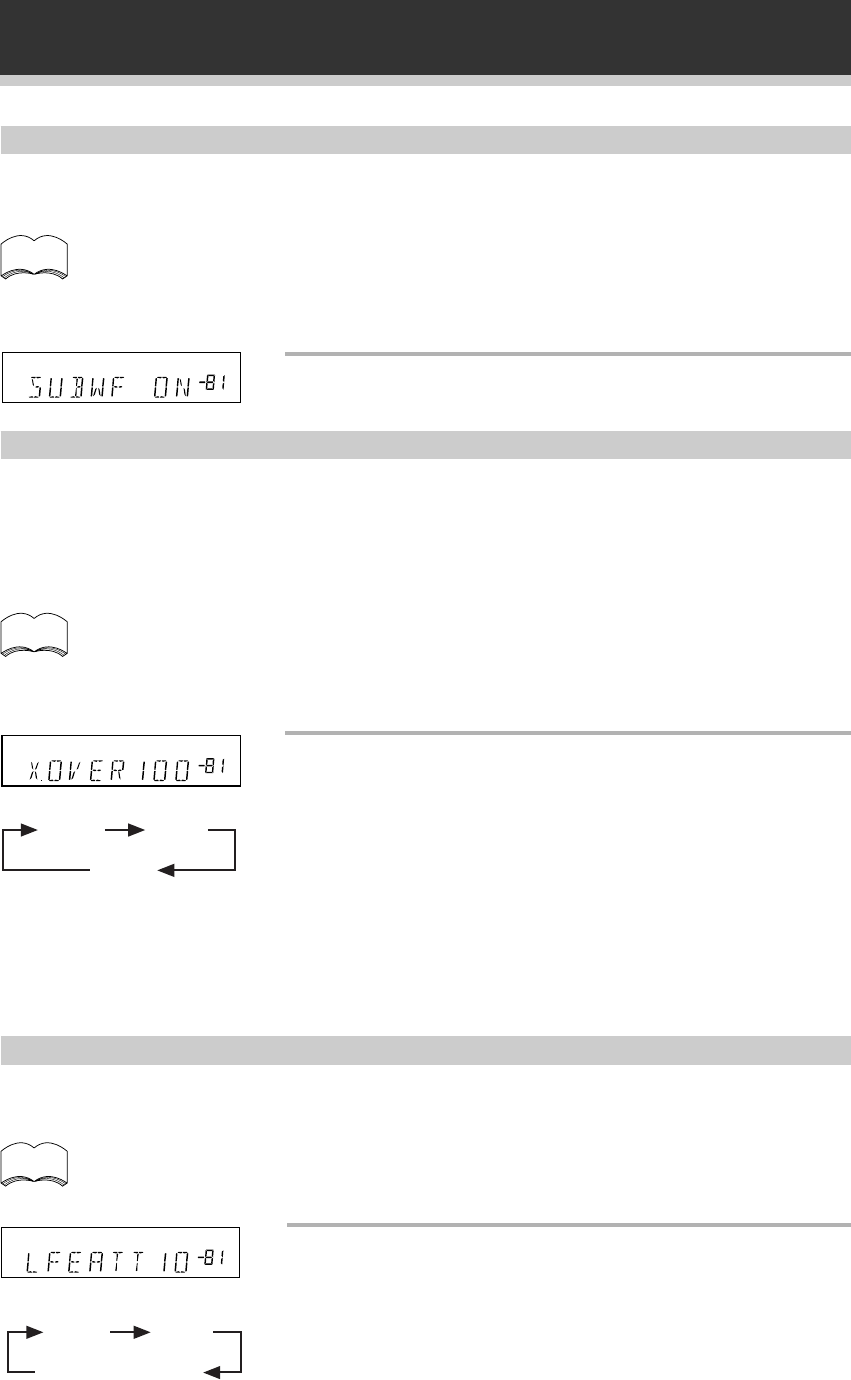
16
Preparations
SUB WOOFER ON/PLUS/OFF setting mode
Sets whether the SUB WOOFER is used or not. Also, when used you have the option to use the “PLUS”
setting.
• Initial setting is “ON”.
• Setting the front speaker size to “Small” in the SPEAKER setting mode automatically
locks the sub woofer in the “ON” position.
• Use the PLUS for extra bass. When you use PLUS you will get the bass sounds from the
sub woofer even if the front speakers are set to “Large”.
Press % or fi to select sub woofer ON, PLUS or
OFF.
Crossover frequency setting mode
Crossover frequency is the point where the receiver divides the high and low sounds (the frequencies) between
the speakers. Since most smaller speakers can’t handle deep bass tones, this setting allows you to send those
sounds to the sub woofer (or speakers set to “Large” if you don’t have a sub woofer) instead of the speakers
set to “Small” in your system. Choose the point at which you want the frequency routed to the sub woofer (or
“Large” speakers).
We recommend setting this to 200 Hz if smaller bookshelf-type speakers are used for your “Small” speakers.
• Initial setting is “100 Hz”.
• If all speakers (front, center, and surround) are set to “Large” in SPEAKER setting mode,
crossover frequency cannot be set because there are no “Small” speakers (*** appears
in the display).
Press % or fi to specify the crossover frequency
for your small speakers (100 Hz, 150 Hz or 200
Hz).
100 Hz
Sends bass frequencies below 100 Hz to the sub woofer (or “Large”
speakers).
150 Hz
Sends bass frequencies below 150 Hz to the sub woofer (or “Large”
speakers).
200 Hz
Sends bass frequencies below 200 Hz to the sub woofer (or “Large”
speakers).
LFE attenuator setting mode
Dolby Digital and DTS audio sources include ultra-low bass tones. Set the LFE attenuator as needed to prevent
the ultra-low bass tones from distorting the sound from the speakers.
• Initial setting is “0 dB”.
• When ∞ is selected (
∗∗
appears in the display), LFE is not available.
Press % or fi to set the attenuation level (0 dB,
10 dB or
∗∗
dB(∞)).
dB
dB
memo
memo
memo
10 dB0 dB
∞ (display "
**
")
dB
150Hz100Hz
200Hz
